Contractual Partnes

ITALY
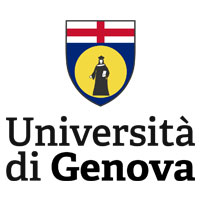
The University of Genoa is one of the oldest of the major European universities. It was founded in 1933, but its history can be traced back several centuries (14th century). UNIGE is a public institution endowed with scientific, educational, organisational and financial autonomy and is involved in the construction of a European area for research and professional training. It operates in accordance with the principles of the Constitution of the Italian Republic and the Magna Charta signed by European universities in 1988. With its 126-degree programmes, more than 55 postgraduate programmes and 26 master’s programmes, UNIGE offers a truly multidisciplinary curriculum to more than 30,000 students, including almost 2,800 international students. UNIGE has 22 departments, 27 doctoral programmes, 55 schools of specialisation, an integrated library system, 12 research and service centres and 2 centres of excellence. The staff consists of 1255 academics, 401 postdocs, 1399 laboratory technicians and administrative staff. UNIGE is heavily involved in the main EU and international research and cooperation programmes. Discoveries, inventions and progress achieved through research activities are successfully commercialised. The University of Genoa is currently involved in 44 active projects under H2020 projects, over 68 projects funded under Interreg, 25 LIFE projects and other international funding instruments and has had over 116 projects in FP7.

ITALY

ALTERITAS – INTERAZIONE TRA I POPOLI
via Seminario 8 – 37129 VERONA
Tel: + 39 045 597683
Website: https://alteritas.it
The association ALTERITAS – Interazioni tra i popoli – a research organisation founded in 2009 and accredited by the Italian Ministry of Universities and Scientific Research (MIUR) in 2015 – is dedicated to the study of interactions between peoples of different origins, languages, cultures and traditions throughout history. Thanks to a network of about 50 scholars from various disciplines (archaeology, linguistics, anthropology, art history, ancient, mediaeval and modern history) and collaboration with numerous research institutions, Alteritas carries out research projects characterised by a wide range of topics and approaches in the humanities and social sciences. All projects aim to relate the past to the contemporary world, considering migration and interaction between people as constant features of humanity. Alteritas also organises meetings, conferences, thematic workshops and book presentations (see https://alteritas.it). As an editor, it has published 6 interdisciplinary and international edited volumes, which are available as open access e-books (http://www.alteritas.it/bookstore/ and on the academia.edu site).

PORTUGAL

Instituto Politécnico de Bragança – IPB – Portugal
Campus de Santa Apolónia 5300-253
T: (351) 273 303 200 / 273 331 570
Website: https://ipb.pt/pt
The Polytechnic Institute of Bragança (IPB) is a public higher education institution whose mission is to create, transmit and disseminate technical, scientific and professional knowledge through the combination of study, teaching, applied research and experimental development. The IPB is part of the European Network of Universities of Applied Sciences, whose main objectives include the transferability of professional skills and the integration of applied research into its professional and technological education mission. The IPB was founded in 1983 and currently consists of 5 schools covering a broad spectrum of knowledge and technology, namely Arts, Communication and Multimedia, Economics and Law, Education and Teacher Training, Agricultural Sciences and Natural Resources, Health, Tourism, Sports, Technologies and Engineering. With its internationalisation programme, which is widely recognised as successful, IBP facilitates the annual mobility of more than 900 incoming and outgoing students and 300 teaching and non-teaching staff. This is the result of co-operation with several European universities and with universities from the community of Portuguese-speaking countries and around the world (www.ipb.pt/iro).

ITALY

NCLOUD S.r.l.
Via Dante Alighieri, 32 – 22066 Mariano C. (CO)
Tel: +39 0362 1880096
Website: www.enne.cloud
NCLOUD is a small company specialising in cloud solutions. In particular, it manages cloud solutions based on the WP6 (WebPyramid 6) platform, a tool optimised for Customer Relationship Management (CRM) and Enterprise Resource Planning (ERP). It also develops websites with strong application content and customised mobile applications. The company’s expertise also includes cyber security and data protection (GDPR). The company has a strong focus on innovation.
The structure consists of a dynamic team of 5/6 developers. Two of them are able to dedicate themselves to the SELECT project thanks to their experience in data mining and innovative systems for managing big data.

SPAIN

Universidad de Zaragoza
Calle Pedro Cerbuna 12, 50009 Zaragoza (Spain)
Tel: +34 976 762052
Website: www.unizar.es
The University of Zaragoza is a public teaching and research institution that combines almost five centuries of history (since 1542) with a constantly updated study programme. The University of Zaragoza has more than 30,000 students, 5,100 teaching and research staff and over 1,800 administrative and service staff. It offers degree programmes in all areas: Arts and Humanities, Engineering and Architecture, Experimental Sciences, Health Sciences, Social Sciences and Law. Students can choose between 54 bachelor’s degrees and, in the field of graduate studies, 55 master’s degrees and 45 doctoral programmes, in addition to 90 specific courses (postgraduate degrees and specialist diplomas) that comply with UNIZAR’s lifelong learning strategy. The University of Zaragoza has consolidated its position in international rankings and is now in the top 2% of the most prestigious universities worldwide. It is one of the 10 best out of 77 in Spain. We are one of the 25 best universities in the world in sports sciences (the first in Spain), one of the 100 bests in chemistry (also the first in Spain) and one of the 200 best in computer sciences (the fourth in Spain).

FRANCE
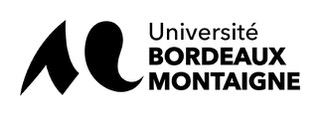
Université Bordeaux-Montaigne
Domaine Universitaire, 19 esplanade des Antilles, 33607 Pessac
Tel: +33 (0)557 12 44 44
Website:www.u-bordeaux-montaigne.fr/
The UMR (Joint Research Unit) Ausonius (UMR 5607) is under the supervision of the CNRS and the University of Bordeaux Montaigne. It is located on the Pessac campus, on the site of the Maison de l’Archéologie and the Archéopôle d’Aquitaine. Dedicated to the study of spaces, societies and cultures from early European history to the end of the Middle Ages, it brought together archaeologists, historians, art historians and Hellenistic and Latin philologists at a very early stage. Today, it is recognised as a reference laboratory for these disciplines, both in France and abroad. The UMR maintains close links with the Montaigne Humanities Doctoral School. Half of the ECTS for doctoral students of the laboratory are awarded in the framework of activities related to the laboratory. Our main doctoral programmes are History, Ancient Languages and Literatures; Mediaeval History; History of Art; Archaeological Sciences. Number of staff 129: 39 lecturers and professors UBM, 9 CNRS researchers (7 CR + 2DR), 2 PRAG UBM, 11 BIATSS + 3 ITA CNRS, 9 (BIATSS + ITA) on fixed-term contracts, 10 post-docs, 47 PhD students, 12 of whom are funded.
FINLAND

Forskningscentrum för Europeisk Flerspråkighet (F|E|F)
Fjärilsvägen 9A5, 65230, Vasa, Finland
Tel: +358 40 5533647
Website: celeuropa.eu/
The F|E|F specialises in (applied) linguistics and social research. It is a registered non-profit organisation founded to coordinate the various research activities in the fields of sociolinguistics, applied linguistics, language planning, geolinguistics and GIS, historical-comparative linguistics, terminology, continuous language education, psycholinguistics, dialectology, lexicography and computational linguistics that its members have been carrying out since 1995 under the name Centre d’Études Linguistiques pour l’Europe. The activities of F|E|F are mainly focused on linguistic, geographical and social research, aimed at the implementation of theoretical database systems and the organisation of linguistic studies in multilingual areas. These are carried out with particular attention to the social and ideological contexts in which they take place and often aim to develop useful strategies for identifying effective promotion or fair language planning policies, with a view to educational development. The comparison between the different present and past multi-layered linguistic and cultural realities of Europe is at the core of F|E|F’s methodology.

POLAND
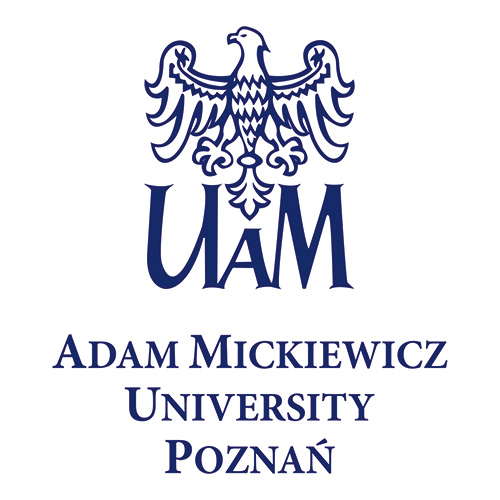
Adam Mickiewicz University Poznan
ul. Henryka Wieniawskiego 1, 61-712, Poznan, Poland
Tel: +48618294308, +48618294332
Website: www.amu.edu.pl
AMU is one of the best Polish universities in terms of the level of research and teaching and is now significantly expanding its research and teaching. It is also modernising and developing its facilities. With 285 subjects and specialisations covering the entire spectrum from the humanities to the natural sciences, AMU has almost 40,000 students studying at Bachelor’s, Master’s and PhD level. AMU employs over 3,000 academic teaching staff and almost 2,100 other staff. The university’s graduates include many renowned professionals, and an AMU diploma is a valuable asset on the labour market. The further dynamic development of our Almae Matris is stimulated by the Strategy for the Development of the Adam Mickiewicz University of Poznań adopted by the AMU Senate. Its implementation guarantees new achievements, new directions of development and a prominent place among universities in Europe and the world. The AMU Faculty of English (Wydział Anglistyki, WA) is the largest centre for English studies not only in Poland, but also in Europe. It has a long history, rich

ITALY
Museo Nazionale Etrusco di Villa Giulia – ETRU
The ETRU is considered the most representative museum of Etruscan civilisation. Since 1 September 2016, it has been established as a special autonomous institute of national interest. The ETRU guarantees the protection, valorisation and accessibility of cultural heritage, promoting its knowledge among the public and the scientific community and encouraging its use. ETRU ensures, both with internal resources and in collaboration with national and international partners, the enhancement of heritage through the organisation of exhibitions and conferences, the promotion of scientific research and its communication to the public, the promotion of the active participation of the scientific community and citizens and the development of close links with the territory. The ETRU Museum aims to form an integrated network of heritage sites and institutions that will promote the cultural and social growth and economic development of the territorial realities that its collections represent, and to support the formation of heritage communities in line with the Council of Europe Framework Convention on the Value of Cultural Heritage for Society (Faro 2005).

SPAIN

Museo de Zaragoza
The Museum of Zaragoza is one of the most important cultural institutions in the
Autonomous Community of Aragón. Its main mission is to protect, study and
disseminate the region’s rich cultural heritage. It has various departments such as
archaeology, fine arts and ethnology.

POLAND
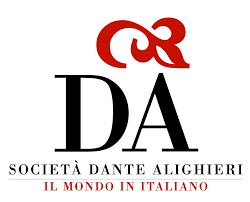
Società Dante Alighieri Wrocław (SDA)
Legnicka 65, 54-206 Wrocław, Polonia
+48 515 271 987
A proud member of the European Union National Institutes for Culture (EUNIC),
Dante Alighieri Society (SDA) is an international network with a rich history of
promoting cultural and scientific studies, with a strong focus on European
integration. Established in Italy in 1889, the network has grown to over 500 local
committees and certification centres worldwide.
The Wrocław committee, in operation since 2011, is a dynamic and active non-profit
organization dedicated to fostering cross-cultural dialogue and active citizenship.
Beyond its well-known Italian language and culture programmes, Dante Wrocław is a
key player in European projects, including Erasmus+ and Horizon 2020, with a focus
on cultural heritage, integration, and inclusive education.
Since 2016, the committee has operated its own publishing house, Wydawnictwo
Società Dante Alighieri, which focuses on scientific publications, further contributing
to the dissemination of knowledge. The core values of Dante Wrocław are centred on
promoting intercultural understanding, equal opportunities, and respect for cultural
traditions. The committee is composed of specialists in communication, research, and
cultural promotion, who bring a wealth of diverse intercultural skills to their work.
Leveraging their long-standing dedication to fostering inclusion and integration,
Dante Wrocław will also serve as a channel for public diplomacy to promote EU
values, Responsible Research and Innovation (RRI) principles, and equality, diversity,
and inclusion (EDI).

PORTUGUAL
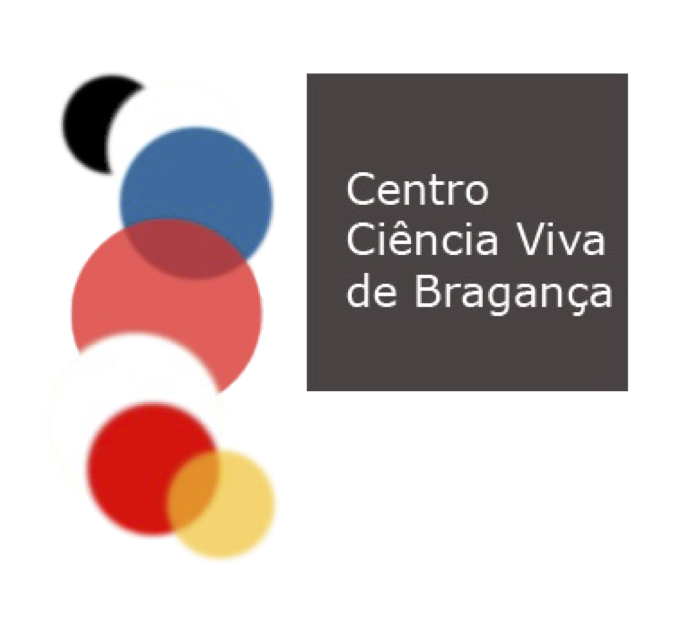
Associação Centro Ciencia Viva de Bragança
Adress: R. do Beato Nicolao Dinís 35, 5300-252 Bragança, Portogallo
Contact: +351 273 313 169
Type of Insitution: Museum
Website: http://braganca.cienciaviva.pt
The Ciência Viva Center of Bragança (CCVB) is a non-profit scientific and technical association, existing since 2004 and open to the public as a cultural facility since 2007. Its founding associates are the National Agency of Scientific and Technological Culture – Ciência Viva, Bragança’s municipal Council and the Polytechnic Institute of Bragança (IPB). It integrates the National Network of Ciência Viva Centres, comprised of 22 centers in the mainland and islands. CCVB also belongs to ECSITE (European Network of Science Centres and Museums), whose main objectives include inspiring and empowering science centres, museums and all organisations that engage people in science, to promote their curiosity and actions, and also to foster creativity and critical thinking in European society by encouraging citizens to engage deeply with science.
